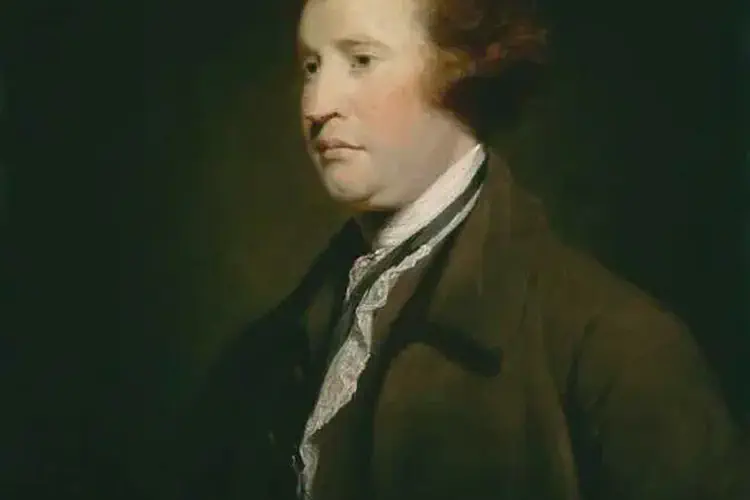Edmund Burke, Irish Statesman, Born
Section: Edmund Burke, Irish statesman, born
January 12, 1729

The Right Honourable Edmund Burke, the prominent Irish statesman, philosopher, and political theorist, was born on January 12, 1729, in Dublin, Ireland. He is widely regarded as one of the most influential figures in the development of modern conservative political thought and is known for his eloquent writings and speeches on a range of political and philosophical topics.
He is chiefly remembered for his support of the American colonies in the struggle against King George III that led to the American Revolution, as well as for his strong opposition to the French Revolution.
The latter made Burke one of the leading figures within the conservative faction of the Whig party (which he dubbed the Old Whigs), in opposition to the pro-revolutionary New Whigs, led by Charles James Fox.
Burke also published philosophical work on aesthetics and founded the Annual Register, a political review. In his day he was considered one of the finest parliamentary orators in Britain.
Burke made several famous speeches while serving in the British House of Commons.
On American Taxation (1774):
Whether you were right or wrong in establishing the Colonies on the principles of commercial monopoly, rather than on that of revenue, is at this day a problem of mere speculation.
You cannot have both by the same authority.
To join together the restraints of an universal internal and external monopoly, with an universal internal and external taxation, is an unnatural union; perfect uncompensated slavery.
Key points about Edmund Burke:
Early Life: Burke was born in Dublin, Ireland, and received his early education at a Quaker boarding school. He later attended Trinity College, Dublin, before moving to London to study law.
Political Career: Burke’s political career included serving as a Member of Parliament (MP) in the British House of Commons. He is most famous for his support of the American colonists during the American Revolution and his opposition to the French Revolution.
Philosophical Works: Burke’s writings, including “Reflections on the Revolution in France” (1790), “A Philosophical Enquiry into the Origin of Our Ideas of the Sublime and Beautiful” (1757), and numerous speeches and essays, have had a profound impact on political thought and conservatism.
Support for American Independence: Burke argued in favor of American independence during the American Revolution, believing that the British government’s policies were unjust and that the American colonists had legitimate grievances.
Critique of the French Revolution: Burke is also well-known for his critical assessment of the French Revolution, expressing concerns about the violent and radical nature of the revolutionary changes in France.
Legacy: Edmund Burke’s writings on government, society, and the importance of tradition and order continue to be influential in political philosophy and conservative thought. He is often cited as one of the founding figures of modern conservatism.
Death: Burke passed away on July 09, 1797, in Beaconsfield, England.
Edmund Burke’s ideas and writings continue to be studied and debated by scholars, and his legacy as a political thinker and statesman endures in political discourse and philosophy.